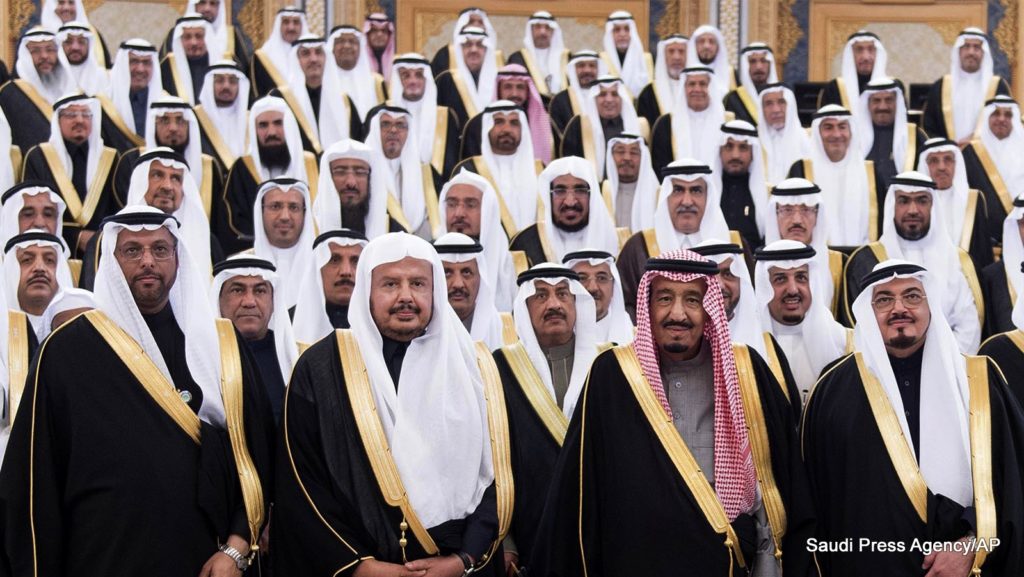
Written By Shehab Al Makahleh and Theodore Karasik
The Kingdom of Saudi Arabia, the richest Arab nation and the home to Islam’s holiest sites, must feel under siege these days. Pressure is coming from many fronts, among them a costly war in Yemen, diplomatic tensions with the U.S. over a new law in which families of 9/11 victims can sue Saudis, and low oil prices that have lead to financial austerity. However, a little-reported debate over the future of a strain of Saudi Arabia’s Wahhabi creed could be a tipping point that destabilizes the whole country.
A consortium of UAE and Egyptian interests meeting of all places in Grozny, Chechnya, is the front line of this new pressure point. They are there to discuss Wahhabism, a Saudi belief system that breeds Salafist terrorists from al-Qaeda to Islamic State. In this sense, the Grozny venue is significant. The Wahhabi creed in the Caucuses region seems to have undergone its own “reformation” in recent years.
Gone are the days of Chechnya being a terrorist outpost in the Russian Federation, attacking aviation, transportation, schools, hospitals, and theaters. A new strain of Wahhabism is now an integral part of the Kremlin’s current drive to make Chechnya, under Chechen President Ramzan Kadyrov, a shining example of Islam and politics working in unison for social and economic development.
Kadyrov’s pro-Russian government sees Grozny as a model for expunging takfiri (violent excommunication) thinking from Wahhabism. Benefitting from intelligence from the Chechen community in Arab countries, the Chechen president plays a role in helping Russia, Syria, and Jordan to target Chechen networks in the evaporating Islamic State.
In other words, a functional model of political Islam is being generated out of all places from Russia. With backing from Egypt and the UAE, this new model of political Islam based on moderate, politically-oriented Sufism is now at the center of the discussion on Wahhabism. Sufi teachings focus on the spiritual rather than the political side of religion and tend to interpret main religious principles, such as jihad, as spiritual matters that one must tame and guide along the path of goodness.
Discussing Saudi Arabia’s Wahhabist creed in such a public forum with the active support and participation of the greater Arab world is a direct challenge to the vulnerable House of Saud. In addition to its external pressures, the Kingdom has new leadership following the death of King Abdullah in 2015, and an uncertain succession plan. The country is trying to deploy an ambitious new agenda, including a National Transformation Program (NTP) and a massive “Vision 2030” plan advanced by the Deputy Crown Prince.
This is a delicate balancing act: Saudi is trying to accommodate its young population with reforms and development, while placating older conservatives as well as the Kingdom’s clerics, many of whom adhere to the strict Salafist doctrine.
To boot, Sufis make up a tiny minority of the Saudi population. Although Sufis in Saudis faced repression under the Al-Saud, since the mid-2000s a reconciliation between Wahhabi and Sufi clerics has helped the latter feel more included in Saudi society. Now, with Sufism seen as a guiding light against Wahhabist Salafism, Saudi Sufis might make themselves heard in new ways on social media against the Saudi clergy.
Because of a focus on Sufism emanating from Chechnya, the Kingdom faces another pressure point and an accelerated threat to its stability. Why Arab allies, in conjunction with Russia, would try to undermine Saudi Arabia is questionable. Relations between Sufis and adherents of other non-Sunni religions and sects is largely friendly. This fact is especially true given the deep-rooted idea of pluralism in Sufi eschatology in addition to diverse cultural norms, which makes Sufism more open to neighboring religions and cultures. For the Kingdom, this fact may be too much.
The Salafi-Jihadists of al-Qaeda and Daesh will see an opportunity to exploit this debate to their own ends. They know that if Saudi Arabia’s creed is being debated, then the Kingdom will be in a weakened position. Terrorist attacks against key targets to bring instability to Saudi Arabia will be a primary objective. This new debate on Wahhabism will only empower extremists, not neuter them.
Dr. Al Makahleh is the co-founder of Geostrategic Media and Dr. Karasik is senior advisor at Gulf State Analytics.